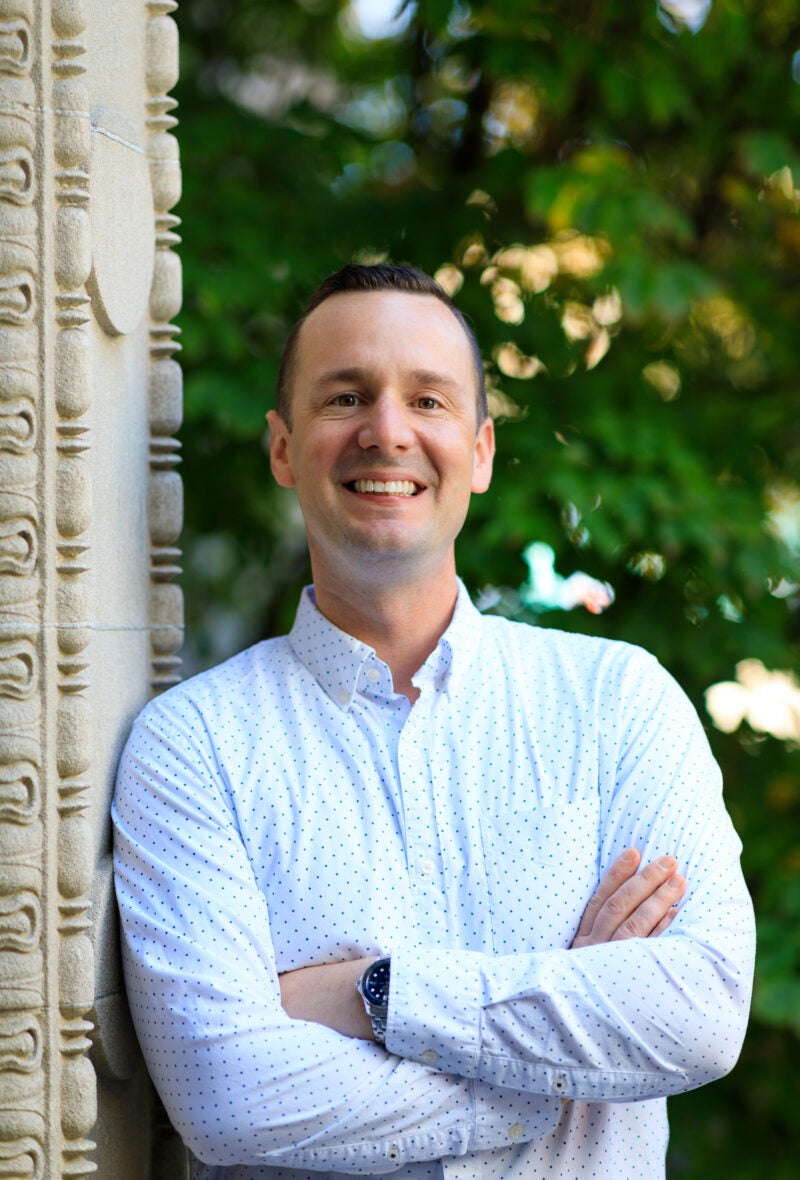Matt Pekoske L.L.M. ’24 knows a lot about cocaine. As a federal law enforcement officer, he knows how it’s made, where it comes from, and one of the best ways to stop it from getting to the United States.
“Most often cocaine smugglers start in Colombia, and Ecuador, and transit up to the cartels in Mexico and then over the border. But if you can intercept it off the coast of its origin, before it gets to the cartels where it’s split up, you can recover much, much more of it,” said Pekoske, a lieutenant commander and judge advocate in the U.S. Coast Guard who has spent part of his 15-year military career running down illegal drug traffickers in the eastern Pacific Ocean and Caribbean Sea.
As part of the crew on a Coast Guard cutter stationed in Key West during his first tour of service, from 2008 to 2010, Pekoske would jump in small speedboats to chase down drug runners on boats loaded with millions of dollars of illegal narcotics. A few years later, he led those same missions as the Cutter’s operations officer, coordinating with speedboats, the planes tracking the action, and the helicopters with snipers ready to shoot out the traffickers’ engines.
But apprehending the criminals and confiscating their contraband was only part of his job. Pekoske also had to assemble a case — compiling witness statements, video footage, photos, and drug test kits — that would hold up in a U.S. courtroom. When the U.S. attorneys took those cases to trial, he, or members of his team, would testify before a federal judge.
For Pekoske, the legal work was equally as challenging as his time at sea, and even more rewarding. “I really enjoyed putting together those packages on the back end to make sure that it wasn’t just a boat that we stopped, but that it went through the process and that there was a meaningful prosecution to impact the transnational criminal organization at the end. Making that kind of impact is really why I wanted to go to law school in the first place.”
“It wasn’t just a boat that we stopped, but that it went through the process and that there was a meaningful prosecution to impact the transnational criminal organization at the end. Making that kind of impact is really why I wanted to go to law school in the first place.”
After earning a law degree from the University of Notre Dame in 2019, Pekoske was stationed in Seattle at the U.S. Coast Guard 13th District Command that oversees operations in the Pacific Northwest. The varied nature of the work kept him busy. “I could be advising one team about a inspection matter at a particular port or on vessel and another team on a law enforcement boarding at sea involving some type of criminal code, while also filing motions in military misconduct cases, and exploring legal issues related to treaty-protected historical fishing rights for Indigenous communities in the area.”
Though the pace was hectic, it wasn’t the most nerve-wracking part of the job. The pressure really ramped up when he needed to advise commanding officers as an on-call attorney during real-time operations and military justice matters. “One lawyer would be on the call,” said Pekoske, “and you were the last person to say ‘yes, the proposed action should go forward, or no, it shouldn’t’ and why. You had to do your homework and know the laws and the regulations, so you could provide advice on the spot.”
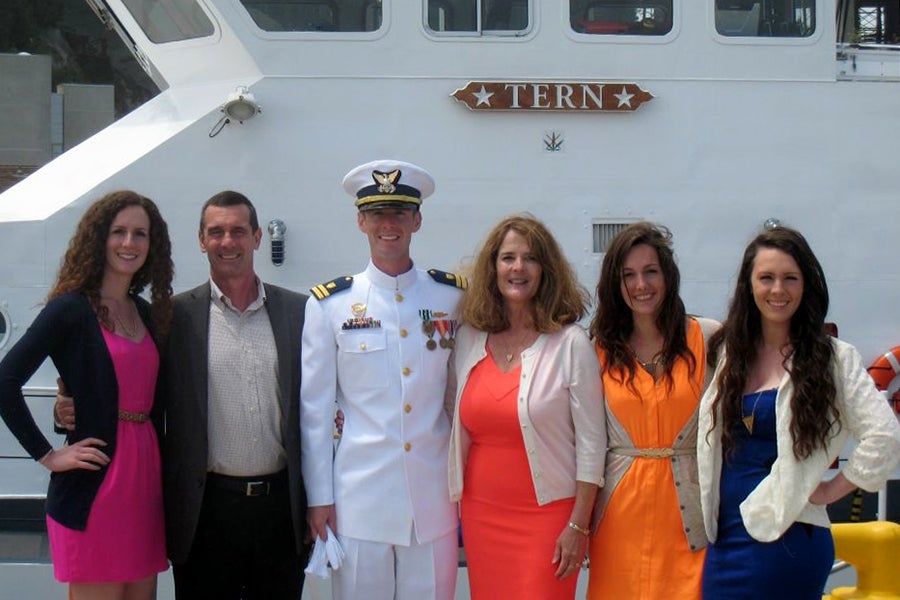
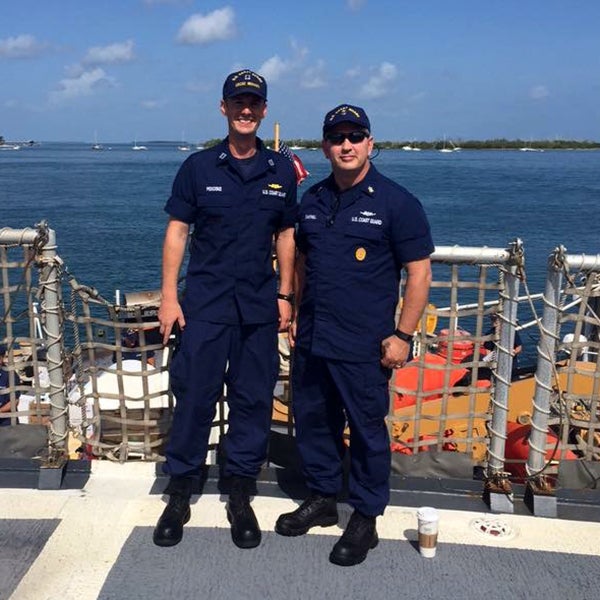
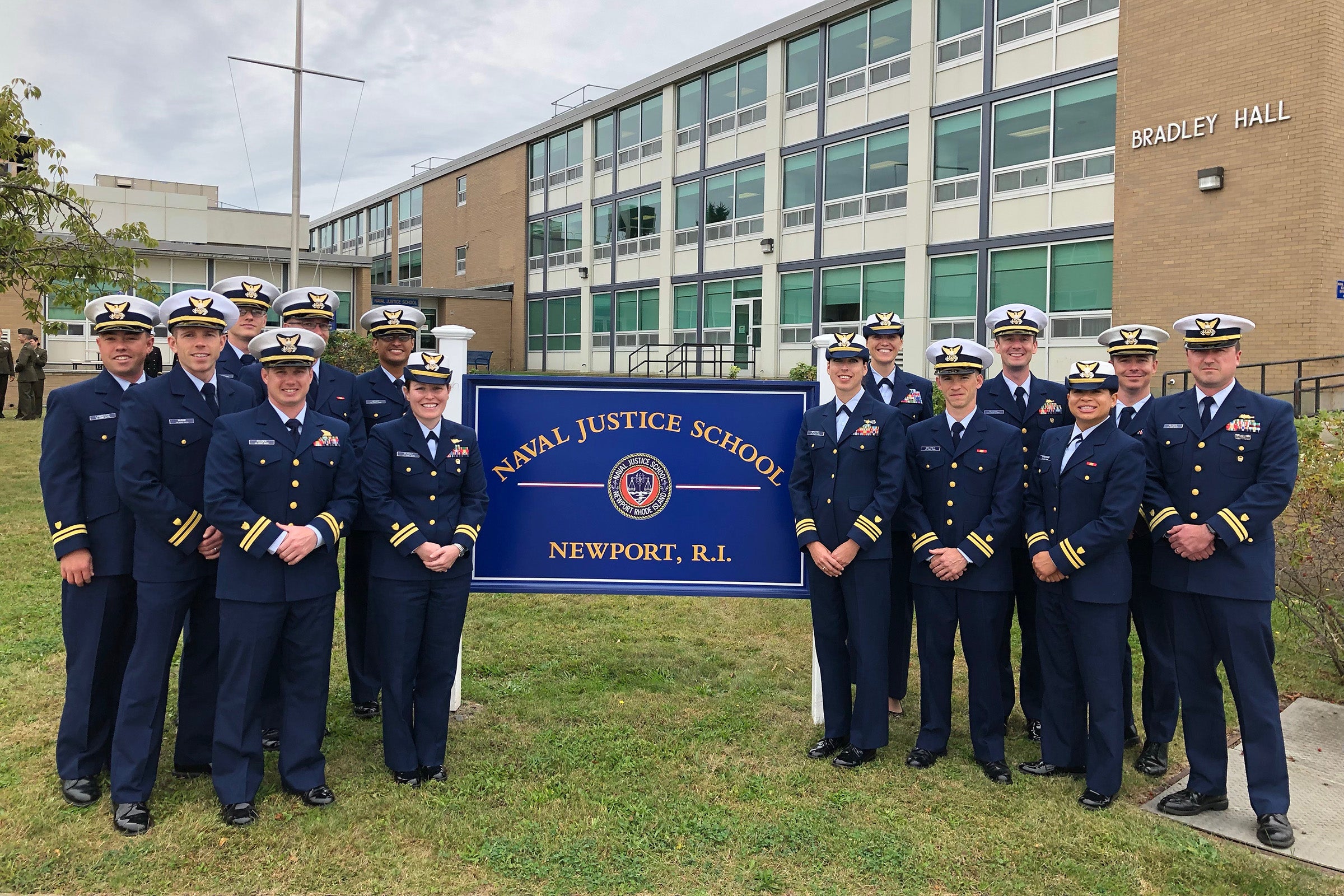
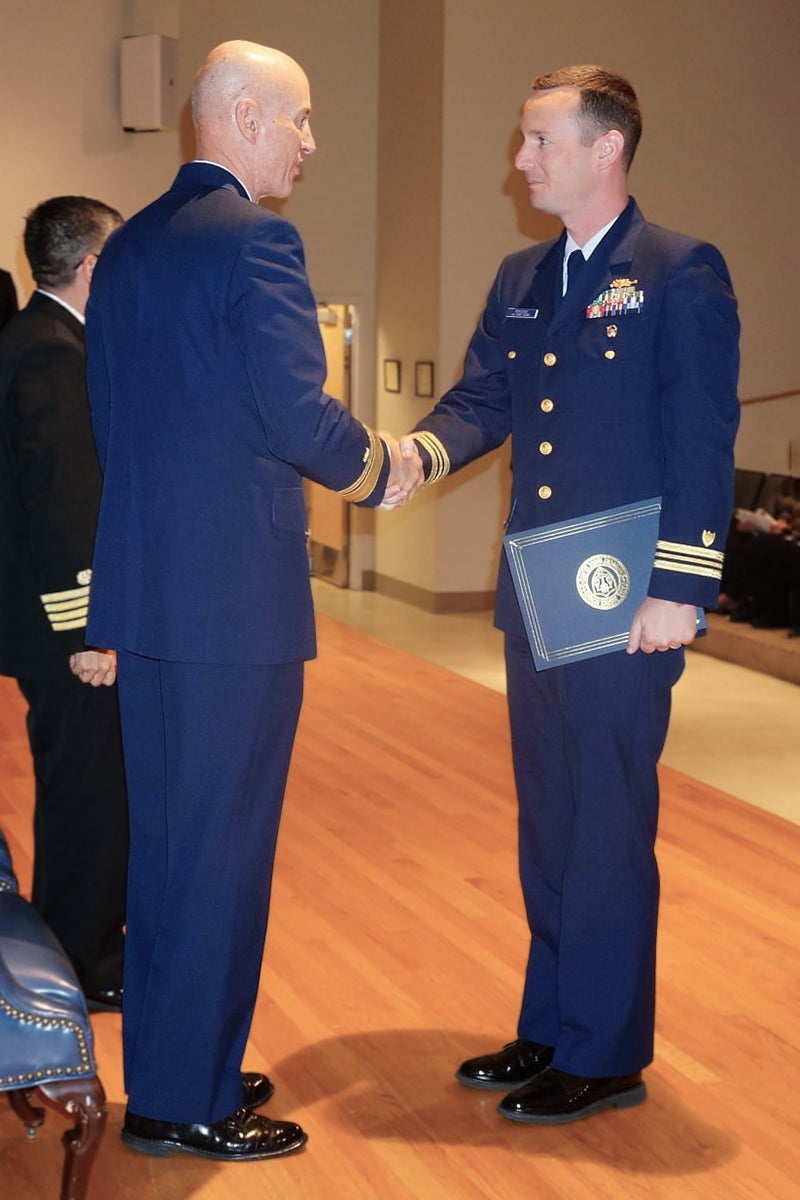
But Pekoske has always known that preparation (the Coast Guard’s motto Semper Paratus means always ready) is key to his chosen field. So is teamwork. In addition to tracking down drug smugglers, he has been part of a range of rescue and safety operations at sea during his career with the Coast Guard, many of which involved other members of the military, federal, state, local, and foreign governments. “I loved taking part in joint operations,” he said, “because every agency and department brings something unique and important to accomplish the mission.” He also enjoyed a cyberlaw security course he’d taken at Notre Dame, well aware that online hacks can harm U.S. ports and vessels, such as the 2017 cyberattack on shipping giant Maersk that disrupted its operations for two weeks and resulted in the loss of between $200 milllion to $300 million.
When a chance to work on cyberspace issues with members from every branch of the military opened up, Pekoske didn’t hesitate. In 2021 he became a national security attorney at U.S. Cyber Command, one of 11 Department of Defense unified combatant commands, responsible for coordinating the military’s operations in the online world.
Pekoske would ultimately serve as the chief counsel to the director of operations and conducted legal reviews of intelligence collection missions and cyber operations, evaluating whether they were consistent “with international and domestic laws and promoted a rules-based international legal order.” He said he was part of operations to persistently engage adversaries and to counter cyber actors and their affiliates who sought to harm the United States and its allies, and that he loved the job. “My time there was absolutely fascinating because you were applying international law in a new domain to novel issues, which as an attorney just makes it a very exciting place to be.”
For Pekoske, another exciting place to be is Harvard. He’s using his graduate year at Harvard Law School to dig deeper into cybersecurity issues “in an academic context,” and learn more about how advances in artificial intelligence and new technologies could affect issues of national security.
“Being exposed to such varied points of view is one of the biggest reasons I wanted to come to Harvard.”
At the law school this fall, Pekoske has enjoyed studying national security with James A. Baker, former general counsel at the Federal Bureau of Investigation and associate deputy attorney general at the Justice Department; surveillance law with Richard Salgado, Google’s former director of law enforcement and information security; privacy law with visiting assistant professor and tech expert Aileen Nielsen; and being part of a reading group on “governing digital technologies,” with Jonathan Zittrain ’95, faculty director of the Berkman Klein Center for Internet and Society. He has also loved engaging with his classmates, who hail from the United States and abroad and bring a range of legal experiences and perspectives to campus.
“Being exposed to such varied points of view is one of the biggest reasons I wanted to come to Harvard,” said Pekoske.
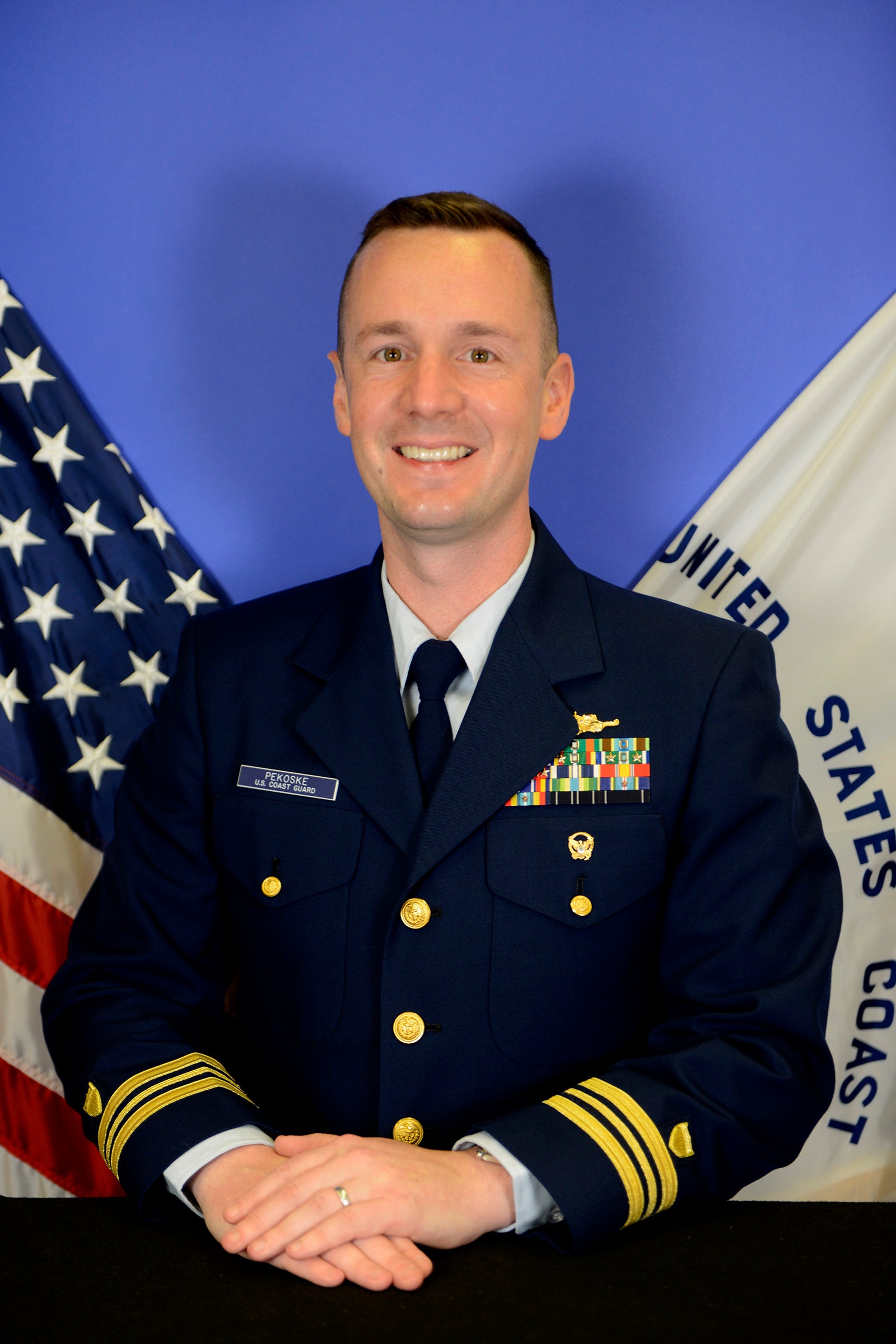
After graduation, Pekoske will return to active service with the Coast Guard. He is hoping to be stationed in D.C., Florida, or California, where he will likely be doing “a mix of national security, cyber intelligence, and law enforcement work.” He said a long career of public service is a possibility, perhaps one similar to that of his father, David P. Pekoske, a retired U.S. Coast Guard vice admiral, and administrator of the Transportation Security Administration, who was acting deputy secretary and later acting secretary of the Department of Homeland Security in 2021.
“I want the kind of job where you’re seeing something on the news, and then you get to go into work and do something about it,” he said. “It’s what I’ve been able to do in the past, and it’s what makes that kind of work so attractive.”
And though Harvard can be demanding of a student’s time, Pekoske has welcomed the chance to have a bit more control over his schedule, picking up his daughter Grace, who turns one in December, early at daycare and visiting local towns with her and his wife, Charlotte, in his free time.
“We’ve just been enjoying getting out and having family time and exploring the area,” he said.
And perhaps unsurprisingly, they like to stick to the coast.
Want to stay up to date with Harvard Law Today? Sign up for our weekly newsletter.
